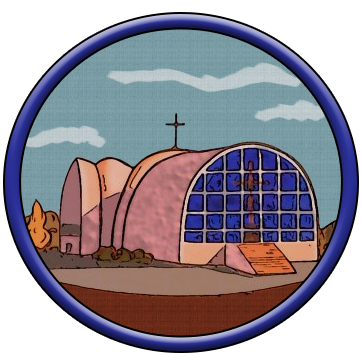Theophany of Our Lord
January 6
By the hand of Father Luke Dingman, www.lukedingman.com
The Feast of the Holy Theophany (Epiphany) of our Lord God and Savior Jesus Christ is celebrated each year on January 6. The Feast commemorates the Baptism of Christ and the divine revelation of the Holy Trinity. At the Baptism of Christ, all three Persons of the Holy Trinity—Father, Son, and Holy Spirit—were made manifest. Thus, the name of the Feast is Epiphany, meaning manifestation, or Theophany, meaning manifestation of God.
The theme of “manifestation” or “revelation” is also expressed in Scripture with the symbolism of light. In the hymn of the Feast we sing, “Christ has appeared and enlightened the world.” Thus, January 6 is also known as the Feast of Lights. The Church celebrates on this day the illumination of the world by the light of Christ.
Our life on earth is especially dependent upon water and light. Water covers most of the earth and interacts with the entire cycle of nature to help things grow. In a comparable way, light is essential to photosynthesis, the miracle behind everything that is green. It causes creative changes in the atmosphere and on the surface of the earth. Light allows us to appreciate nature’s rich colours. And these two elements—water and light—are the chief symbols for the Feast of Theophany.
Until the time of Christ, the whole world lay in the darkness of evil. By His immersion in the Jordan, Christ sanctified not only the waters of the Jordan, but the whole nature of the waters. Since there is water everywhere, by sanctifying the waters, Christ sanctified all of creation and the entire universe. He gave the waters the power to cleanse human sin.
The baptism of John was only a sign of repentance. Christian Baptism is a new birth and the forgiveness of all sins. God punished the sin of the first world with water, destroying it in a flood of waters. Now God saves people with water in the Mystery of Baptism.
Christ’s Baptism was the beginning of the purging of the world from evil. Those who reject Baptism unknowingly allow the world to be filled with evil once more. We baptise the new-born child, before the seeds of evil can come to lurk in his soul.
On this Feast it is traditional to bless water. The holy water from the church is given to the faithful to consume and to use in blessing their homes. In the weeks following the Feast, clergy visit the homes of parishioners and conduct a service of blessing using the holy water that was blessed on the Feast of Theophany. We sprinkle our homes and work-places, our cars – with holy water so that no evil can lurk in them.
Today’s Feast could also be called the Feast of Theophanies, as it also proves to the world that Christ is both God and man, that He has two natures. On the one hand, the Father calls Him ‘My beloved Son’ and the Spirit bears witness. On the other hand, St John the Baptist shows in his humility that he is unworthy even to undo Christ’s shoelaces, recognizing that the sinless human nature of Christ did not need baptism. We know that the water did not cleanse Him, the most holy and sinless One; but it was He who sanctified the water by deigning to be washed by it. Christ underwent baptism in his human nature only because He needed to set us an example, to undergo all that we must undergo in order to be worthy of the Kingdom of God. It is the will of God that all be baptised.
As we celebrate Jesus’ baptism, we are reminded that baptism is a sign of death and resurrection. As death came into the world by sin, so in baptism we are cleansed from sin and freed from the bonds of death. In baptism we die and are resurrected in Christ, beginning the life of grace, receiving the gift of the Holy Spirit, being released from the power of death through communion in the body and blood of Christ. We are reborn.
We are made in the image of God and baptism regenerates this image. . . (A good and sincere confession too is a baptism of sorts, restoring the original images of God in us!) We wish to be like Christ, to whom we turn. We share in the royal priesthood of Christ. The foundation of our salvation is here in baptism. The seed of the Kingdom of God is sown, to be watered by the tears of repentance.
Adapted with appreciation from: Greek Orthodox Archdiocese of America at Epiphany
UCREC Saskatoon
